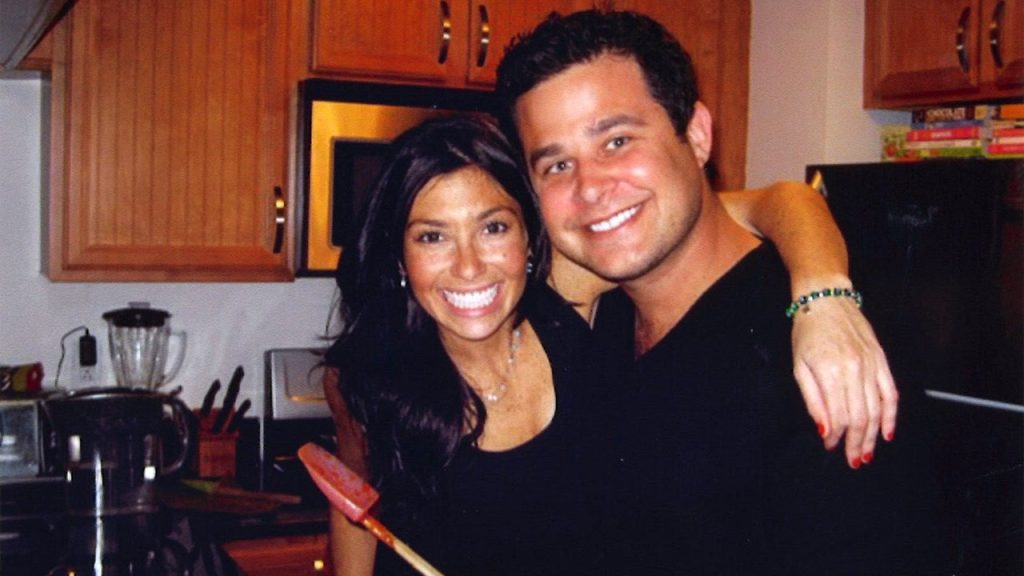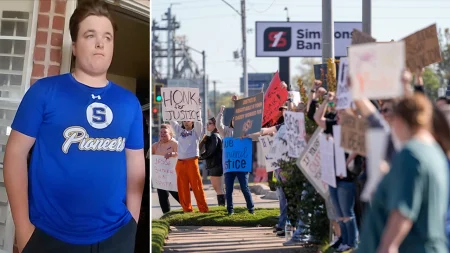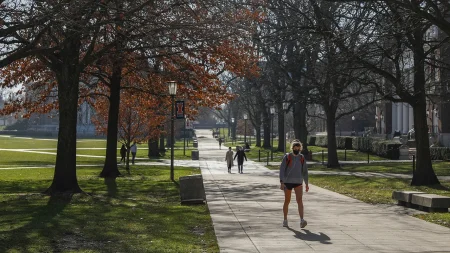The death of Ellen Greenberg, a 27-year-old Philadelphia teacher, remains shrouded in controversy, recently reignited by her fiancé’s first public statement and a significant legal battle waged by her parents. Found in her apartment in 2011 with 20 stab wounds and covered in bruises, Greenberg’s death was initially ruled a homicide but later changed to suicide, a conclusion her parents vehemently contest. Their ongoing legal fight seeks to overturn the suicide ruling and expose what they believe is a cover-up by local officials and the medical examiner’s office. This week’s oral arguments in their civil suit mark a critical juncture in their relentless pursuit of justice for their daughter.
While the Greenbergs maintain their daughter’s death was not self-inflicted, citing forensic evidence and expert opinions that support their belief, Ellen’s fiancé, Sam Goldberg, publicly attributed her death to mental illness and suicide. Goldberg’s statement, his first on the matter, expressed his grief and condemned what he deemed false narratives surrounding her death. He emphasized the devastating impact of mental illness and pleaded for understanding and awareness, while also implicitly denying any involvement in Greenberg’s demise. This divergence in perspectives deepens the mystery surrounding the circumstances of Ellen’s death.
The details surrounding Ellen Greenberg’s death are both perplexing and disturbing. Found during a blizzard with a knife in her chest and a half-eaten fruit salad nearby, the scene suggested a sudden and violent end. The initial homicide ruling by the medical examiner was subsequently reversed to suicide after a closed-door meeting with police, a decision that fueled the Greenberg’s suspicions. The nature and location of the stab wounds, some inflicted post-mortem, further complicate the narrative and raise questions about the possibility of self-infliction.
Adding to the complexity of the case is the involvement of Goldberg’s uncle, a Pennsylvania judge, who removed items from the apartment before a thorough police search. While he claims to have had police permission, the removal of potential evidence raises concerns about the integrity of the investigation. The Greenbergs also allege that Ellen had expressed a desire to leave the apartment she shared with Goldberg and return home, citing possible abuse and anxiety as contributing factors. A psychiatrist who treated Ellen shortly before her death noted no suicidal tendencies, further challenging the suicide ruling.
The Greenbergs’ fight for justice has garnered support from various experts, including the renowned forensic pathologist Dr. Cyril Wecht, who deemed the suicide ruling highly improbable after reviewing the autopsy. Concerns about mishandling of the crime scene and the premature release of information have also been raised, prompting questions about the thoroughness of the initial investigation. The Chester County District Attorney’s Office, after an independent review, declared its inability to pursue criminal charges but left the case open to future developments, acknowledging the lingering uncertainty.
The Greenbergs’ legal battle has reached the Pennsylvania Supreme Court, which will determine whether they have standing to challenge the suicide ruling. This marks a significant milestone in their pursuit of justice and could set a precedent for future cases. While the Philadelphia police remain silent, citing the ongoing litigation, the Greenbergs remain steadfast in their conviction that their daughter’s death was not a suicide. The conflicting narratives, coupled with the unusual circumstances surrounding Ellen’s death, continue to fuel speculation and demand a thorough and impartial investigation to uncover the truth. The Greenbergs’ unwavering pursuit of justice for their daughter keeps the case alive, hoping to finally unravel the mystery of Ellen Greenberg’s tragic death.











